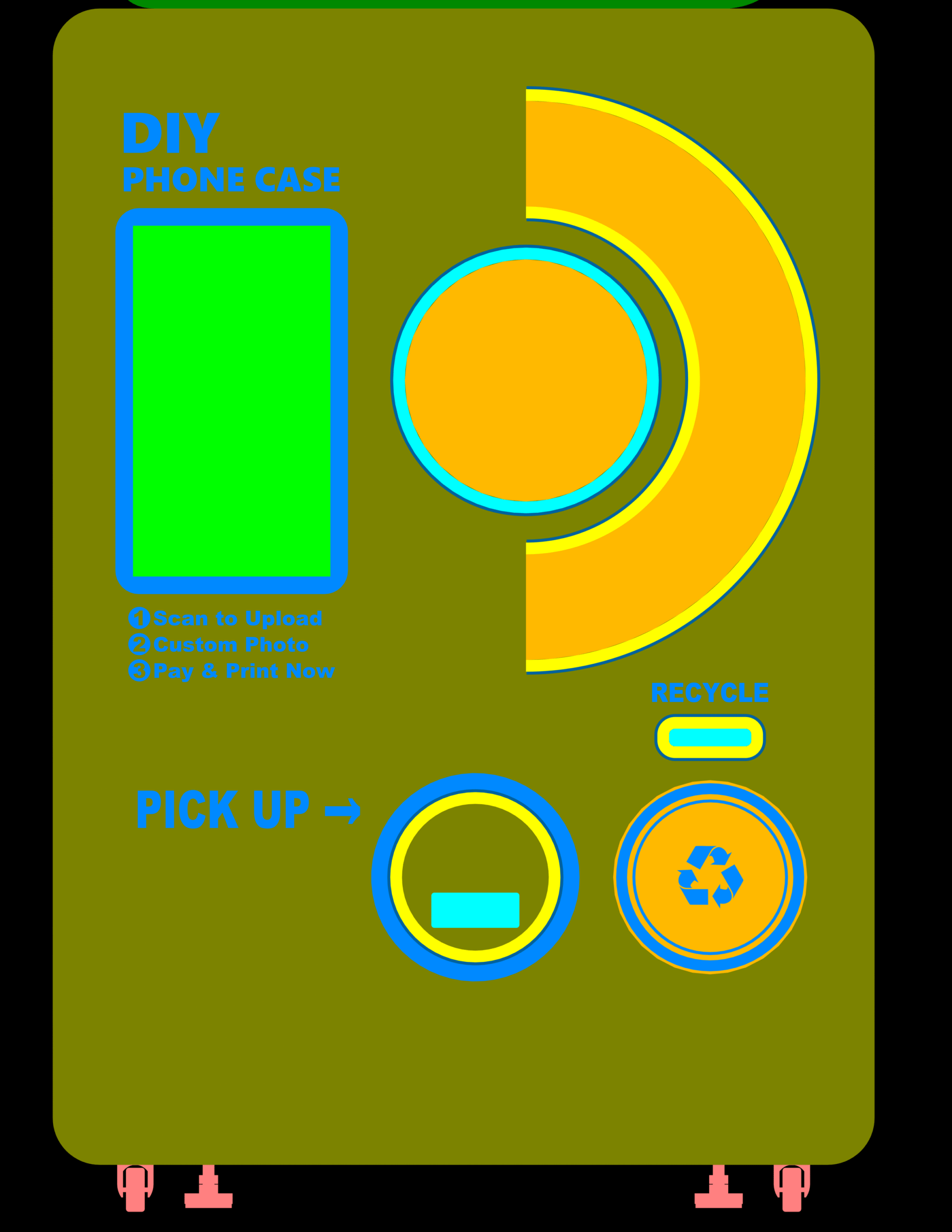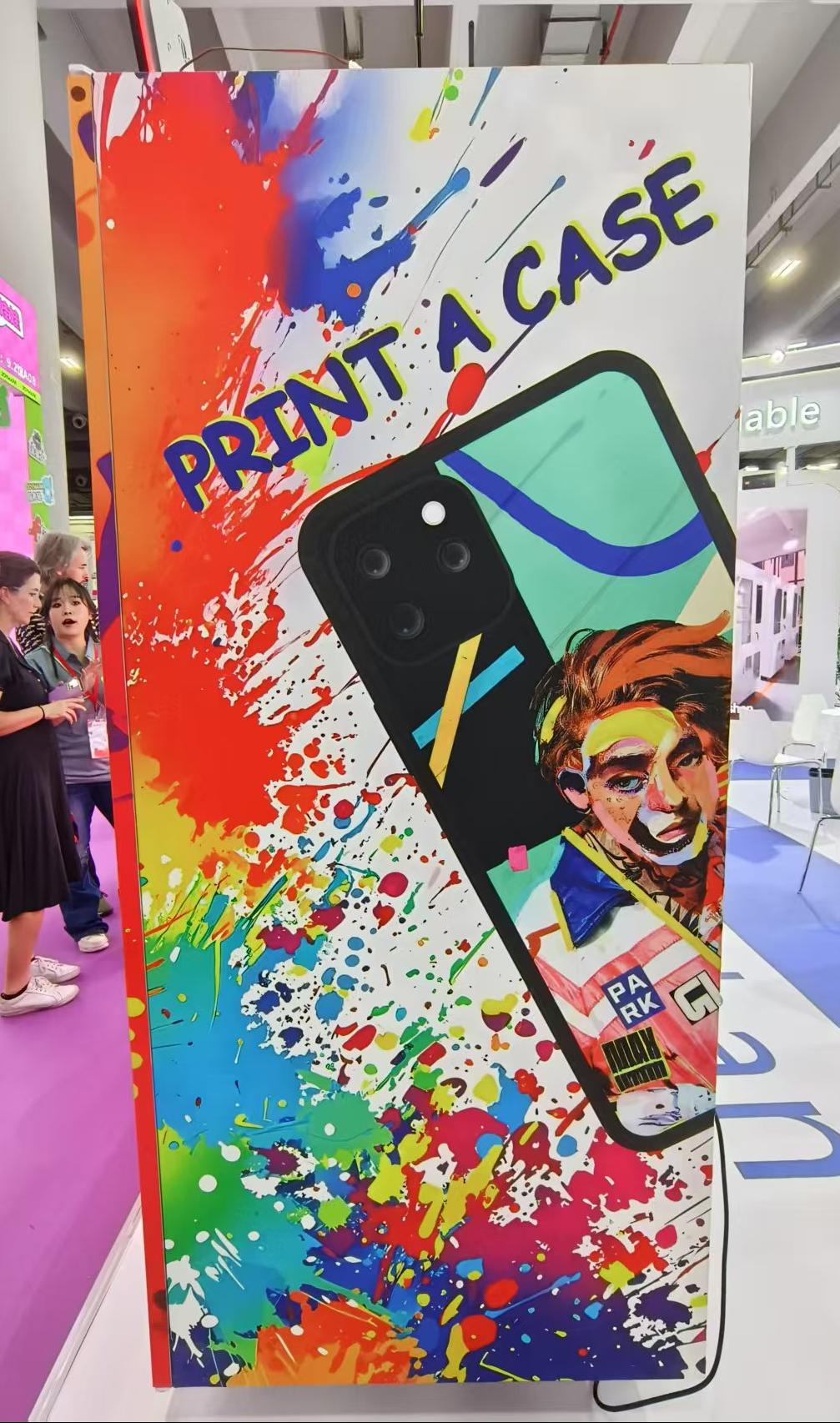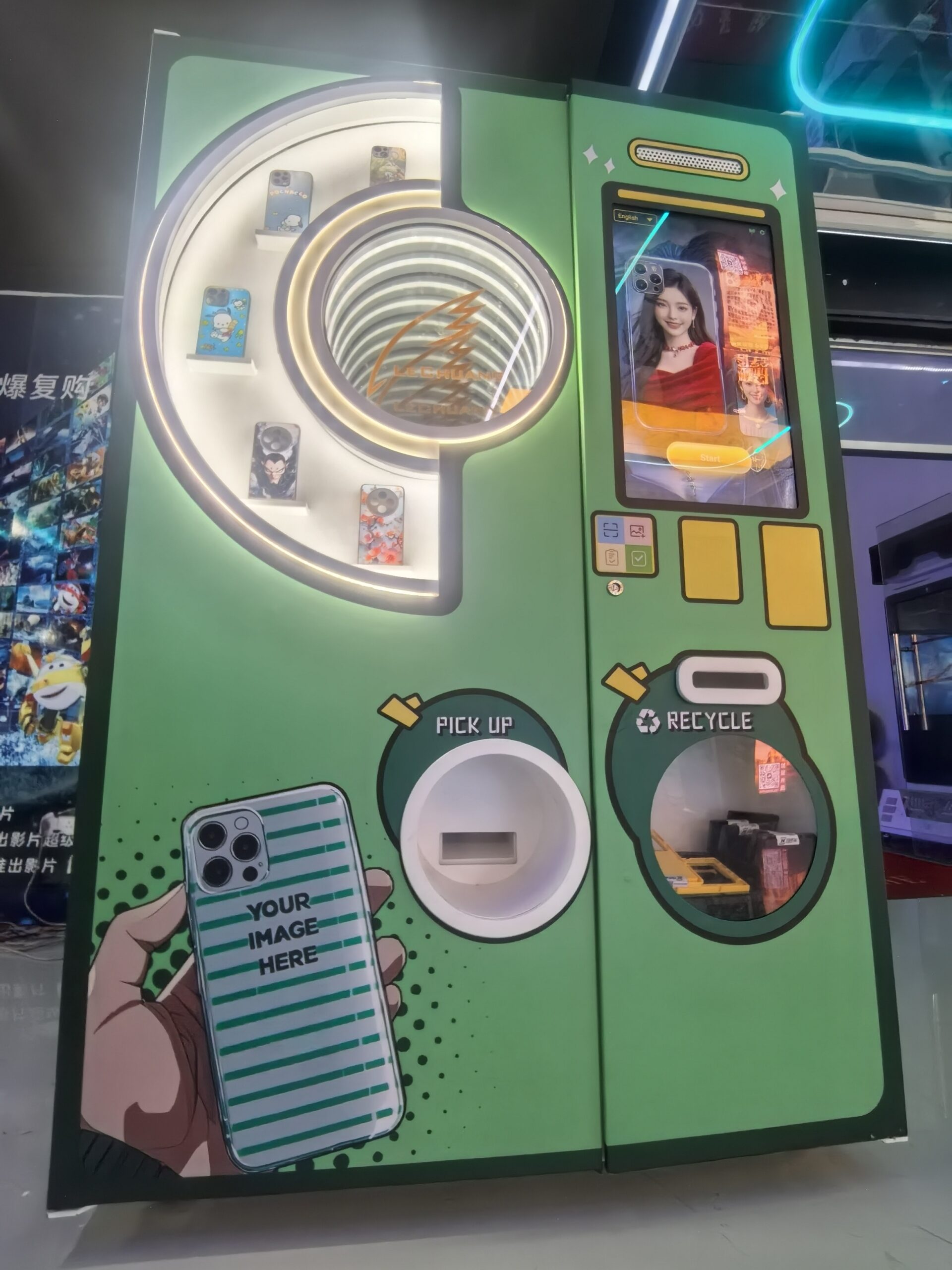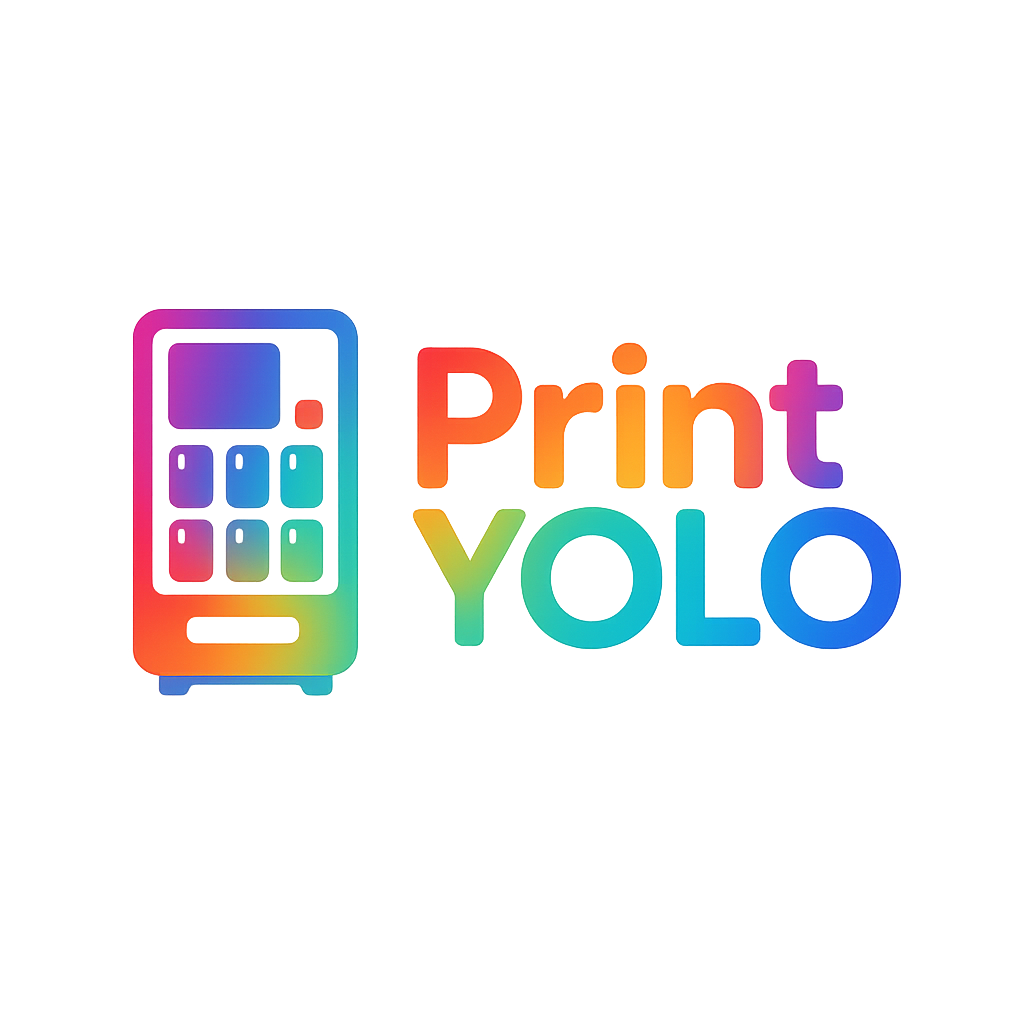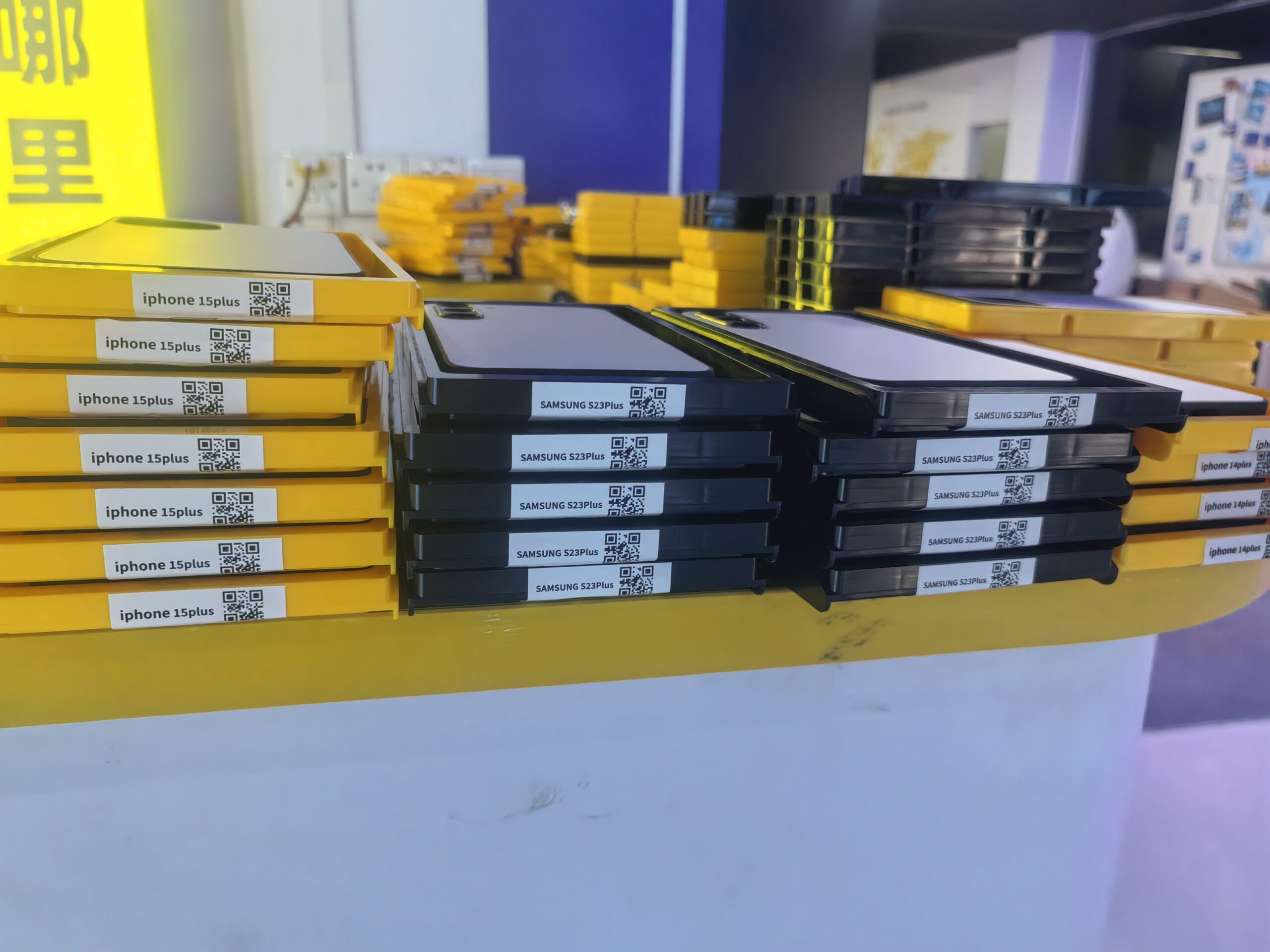
What's the different Phone Case Printer Vending Machine vs. Traditional Retail?
When I talk about PrintYOLO's phone case printer vending machines, people often ask me how they’re different from buying a case in a regular store. It's a good question because they serve the same need but in very different ways.
Phone case printer vending machines differ from traditional retail by offering instant, on-demand customization, 24/7 availability, lower operational overheads, and prime high-traffic location accessibility, creating a unique, engaging customer experience compared to fixed store hours and inventory limitations.
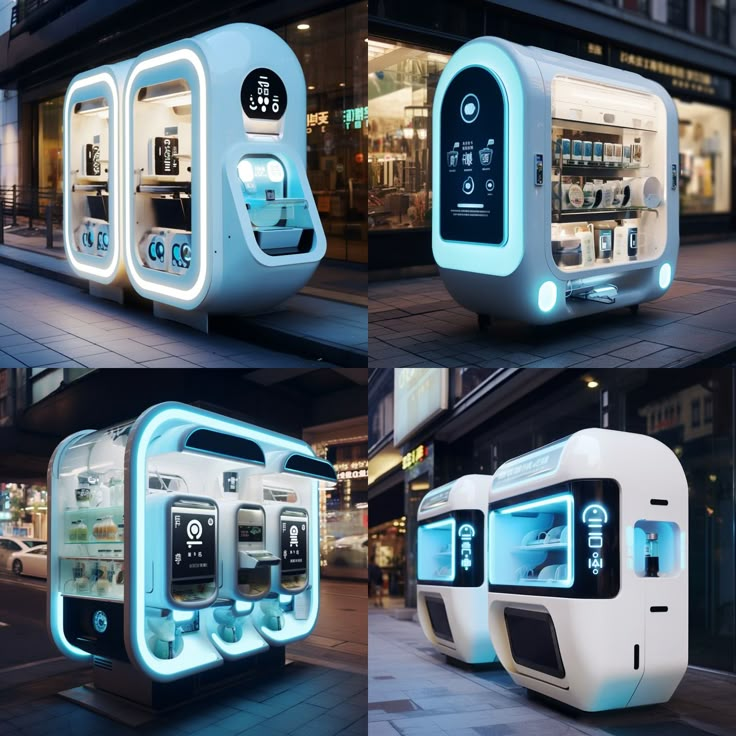
I always focus on how our machines solve problems for both customers and business owners. It's not just about selling a product; it's about optimizing the entire process from selection to purchase. Let me explain these differences in more detail.
How does customer experience differ?
When you walk into a store, you expect a certain way of buying. Our vending machines offer a different experience. This difference is key to how people react and what they buy.
The customer experience with a phone case printer vending machine is characterized by instant gratification, self-service, and on-the-spot personalization. In contrast, traditional retail offers human interaction, wider browsing options (for other products), and often requires store hours, but lacks instant custom printing.

For me, the customer experience is everything. With a PrintYOLO machine, it's about speed and personalization. A customer walks up, selects their phone model, chooses a design (or uploads their own photo), pays, and in about 3-5 minutes, has a custom-printed phone case in their hand. It's an immediate, interactive process. There's no waiting in lines, no sales associate trying to upsell them, and it's available 24/7 in locations like airports or malls. It's a precise, self-directed purchase. In a traditional retail store, like a phone accessory shop or a department store, you have sales staff. They can answer questions and offer advice, which some customers prefer. You can also physically touch and feel many different cases before buying, and browse other related items like chargers or screen protectors. However, instant custom printing is rare in traditional stores. If they offer customization, it usually involves ordering and waiting days or weeks. So, the vending machine wins on speed, personalization, and convenience, especially for impulse purchases or unique needs. The interaction is solely with the machine, which appeals to a segment of consumers who prefer efficiency and autonomy.
| Feature | Phone Case Printer Vending Machine | Traditional Retail Store |
|---|---|---|
| Customization | Instant, on-demand printing (3-5 mins), highly personalized | Usually pre-printed, custom orders involve waiting (days/weeks) |
| Availability | 24/7 (location dependent) | Limited by store operating hours |
| Interaction | Self-service, machine-based | Human sales staff, face-to-face interaction |
| Product Access | Focused on one product type (phone cases) | Wider range of accessories, other products |
| Speed of Purchase | Very fast (minutes) | Can involve browsing, waiting in lines |
| Location | High-traffic, often unattended locations | Dedicated shopfronts, shopping centers |
What are the operational differences for a business owner?
Running a traditional store is very different from managing a fleet of vending machines. For me, these operational differences are a big part of why PrintYOLO machines are such a smart investment for entrepreneurs.
For business owners, phone case printer vending machines offer significantly lower overheads, no staff salaries, minimal rent for a small footprint (1.4 m²), and remote management capabilities. Traditional retail requires higher rent, staff wages, extensive inventory management, and more complex physical security.
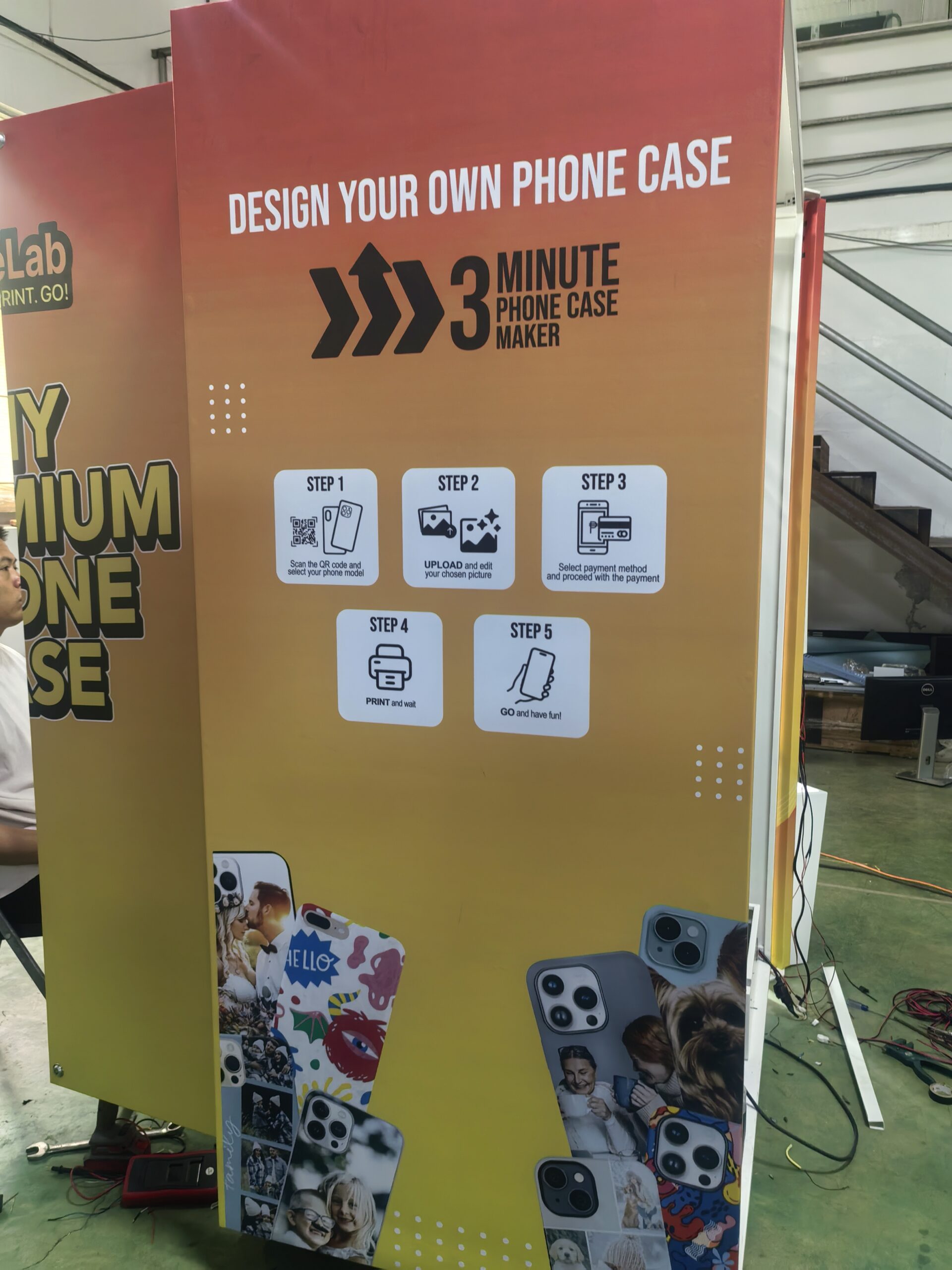
This is where the business model truly shines. With a traditional retail store, a business owner faces high upfront costs like shop fitting, and then ongoing expenses like monthly rent for a large space, and most significantly, staff salaries. You need people to open and close the store, help customers, handle money, clean, and manage inventory. This adds up to a large fixed cost every month, regardless of sales. My PrintYOLO machines, on the other hand, are compact (1.4 m²), so the space rental is much lower, often just a percentage of sales or a small flat fee. There are no staff to pay within the daily operation of the machine. The machines operate themselves. This means significantly lower labor costs. Inventory management is simpler too. We primarily stock blank cases and ink for the printing process. This is far less complex than managing hundreds of different pre-made phone case designs or a whole range of other accessories. I can monitor sales, stock levels, and machine status remotely from my office. If a blank case runs out, I get an alert. This efficiency reduces operational headaches and allows for scalability, meaning one owner can manage many machines across different locations without needing a large team. Owners can focus on finding good locations and ensuring the machines are well-stocked.
| Operational Aspect | Phone Case Printer Vending Machine | Traditional Retail Store |
|---|---|---|
| Staffing | None (self-service), remote maintenance/restocking only | Multiple employees (sales, management, security, etc.) |
| Overhead Costs | Low (space rental, utilities, internet, consumables) | High (rent, utilities, insurance, staff salaries, marketing) |
| Inventory Mgmt. | Simpler (blank cases, ink), remote tracking | Complex (diverse products, sizes, colors, brands), manual checks |
| Real Estate Footprint | Very small (approx. 1.4 m²) | Larger shopfront (hundreds to thousands of m²) |
| Hours of Operation | 24/7 potential without staff | Limited by staff availability and store hours |
| Management | Remote monitoring, alerts, data analytics | On-site management, regular physical checks |
| Scalability | Easy to deploy multiple units across locations | Each new location requires significant setup and staff |
How do product selection and inventory differ?
The way products are presented and how inventory is managed is another big difference. It affects what's available to the customer and how easy it is to keep the business running.
Phone case vending machines offer a curated selection of blank cases, but the design options are virtually limitless due to on-demand printing. Traditional retail holds an extensive physical inventory of pre-made cases, meaning limited design choices for any specific model, and higher risks of unsold stock and storage costs.
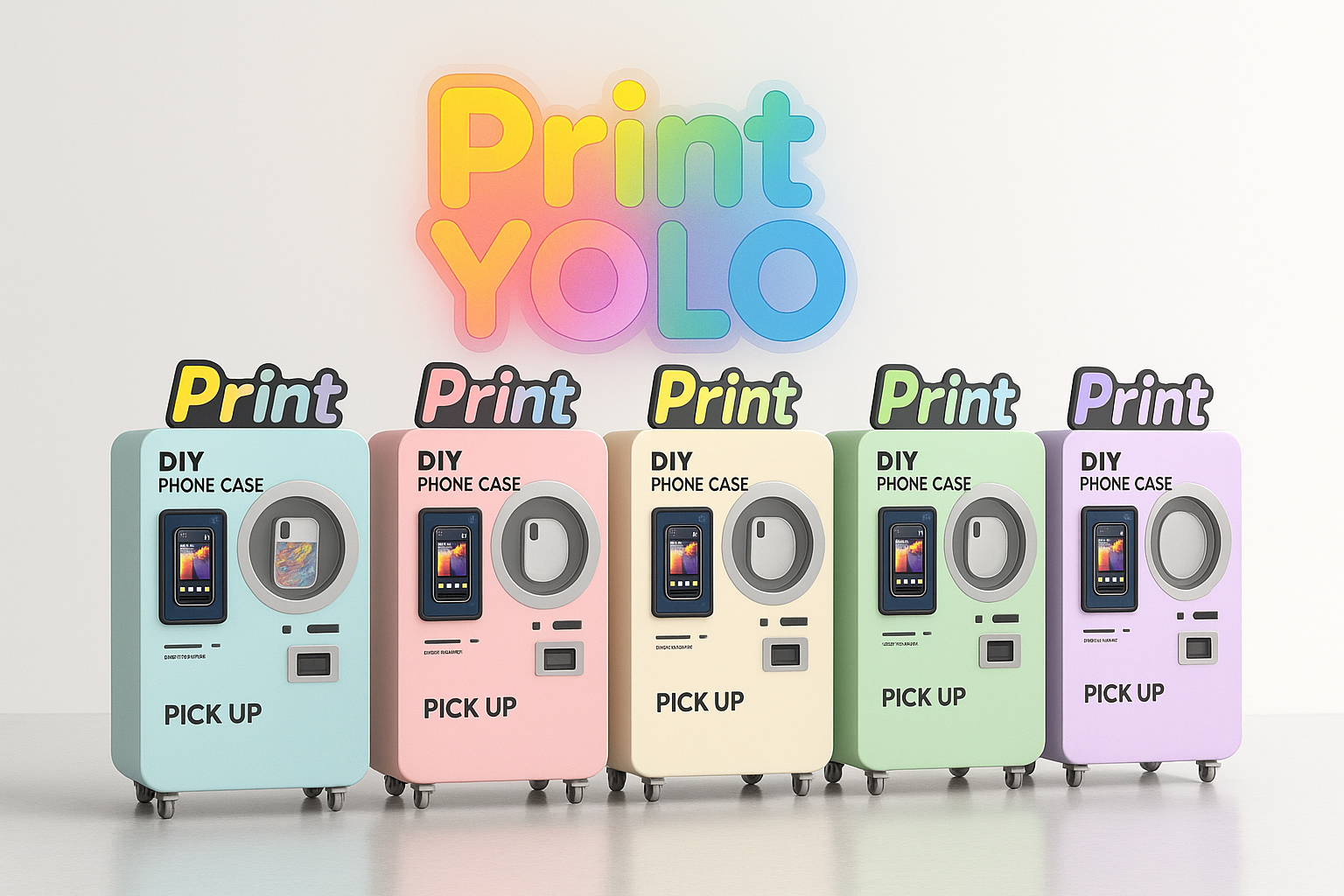
In a traditional retail store, for every phone model, you need to stock many different designs, colors, and styles of cases. This means a huge physical inventory. For example, if you have 10 phone models and 20 different case designs for each, that's already 200 distinct items to manage. This leads to high storage costs, potential for unsold stock (dead inventory) if a design becomes unpopular, and more frequent stock checks. With our PrintYOLO vending machines, the physical inventory is much simpler. We only need to stock blank phone cases for various popular models and ink cartridges. The "designs" are digital. My machines come with a vast library of designs, and customers can upload their own. This means endless possibilities without needing to store shelves full of printed cases. We can update the design library remotely, adding new trending images or seasonal themes instantly, without shipping new physical products. This streamlined inventory reduces waste, frees up capital that would otherwise be tied up in physical stock, and allows us to react quickly to design trends. It's a much more agile and efficient way to offer a wide product selection.
| Aspect | Phone Case Printer Vending Machine | Traditional Retail Store |
|---|---|---|
| Physical Inventory | Blank cases (phone model specific), ink | Large inventory of pre-printed cases (model, design, color) |
| Design Variety | Unlimited digital designs, personal uploads, AI-generated | Limited to physical stock on hand |
| Stock Management Risk | Lower risk of dead stock for designs | Higher risk of unsold/obsolete designs or models |
| Space Required for Stock | Minimal (internal machine storage) | Significant (backroom, shelves, warehouse) |
| Product Refresh | Digital updates (new designs, features) on the fly | Requires ordering, shipping, shelving new physical products |
Phone case printer vending machines offer instant, personalized products with lower operational costs and 24/7 access, a distinct advantage over traditional retail's fixed inventory, higher overheads, and limited hours.


